Light in Babylon is a multicultural Istanbul-based band that has turned heads in the city with its original music that speaks to all cultures and languages. In a span of few years, their fan base grew miles beyond Turkey. Their songs are in Hebrew, but the themes are diverse.
Thank you for taking the time to speak with us today. First of all, how do you like to describe Light in Babylon?
Julien: We can call it cross-cultural music. Because it’s a mix of different cultures and different ethnicities, and it’s kind of music that crosses borders as we are mixing many things. It’s original music that has a bit of Turkish and folk.
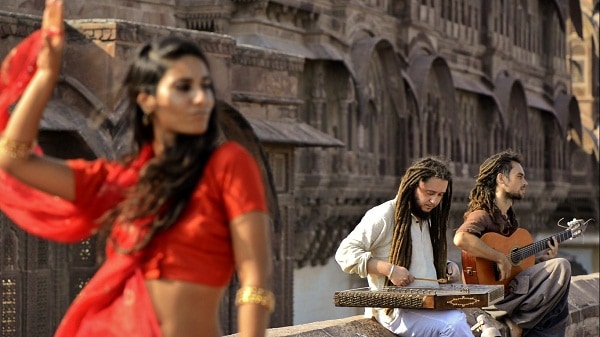
Light in Babylon is a very intriguing name. It quickly brings to the mind images of the East and its history. What was the main intention behind the name?
Michal: Actually Light in Babylon for us has two meanings. The first meaning in the modern time is when the term “Babylon” became an expression of our modern industrial society where everybody wakes up in the morning, goes to work, and then comes back, and this routine goes on and on. Our city is like Babylon and our life style is Babylon’s life style. The moment you put any kind of art, like music, dance, theatre or whatever – in our case it’s music, inside Babylon, inside the street, you create a light. This is the light of Babylon. The moment you create music inside the system, you make people look in different directions, not only one.
The second meaning of Light in Babylon is the ancient story about Babylon Tower [the Tower of Babel] where all the cultures split and everybody started to speak different languages. Also, we ourselves come from different cultural backgrounds; I come from Israel/Iran; Julien is from France; and Metehan is from Turkey. Even when we met we were speaking totally different languages. But the single language that was beyond everything was music. This is also where Light in Babylon comes from. It pretty much describes who we are and what we do.
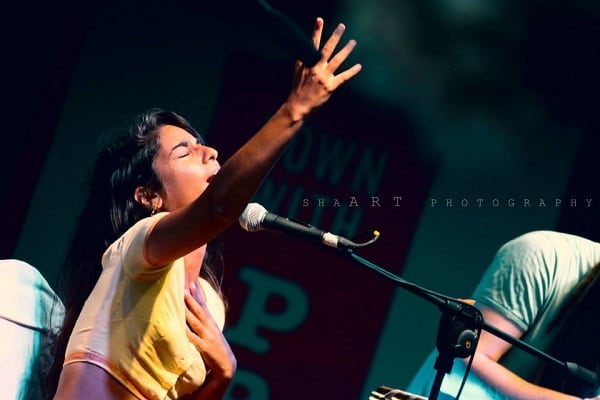
So do you want to tell us more about how and when you got started?
Michal: Sure, about four years ago me and Julien arrived to Istanbul. Before coming we had heard many amazing things about Istanbul; that there are many musicians; there is music from the East and the West; and there is a lot of fusion of these different kinds of music. Then one day, while we were playing in the street and then passing by, we saw Metehan playing the Santour. We were very impressed and touched by the way he played.
Then we went and said, “Hey, let’s play a song together,” and he said, “Why not?” He did not speak one word of English, and I did not speak one word of Turkish. But there was no need. We played one song. It was great. We played the second song. It was incredible. Since then we’ve probably played ten thousand songs.
Speaking about your songs, since your songs are in Hebrew, who writes the lyrics and chooses the themes?
Michal: I’m a writer, so I write the lyrics. Part of the lyrics are old Jewish poetry. The language also is not daily Hebrew, it’s the old Hebrew dialect. As for the organization of the songs, we do it together including the music and the composition – this is how we create the songs. Sometimes, the composition part comes first and then the lyrics. Other times, the lyrics part comes first and then we compose.
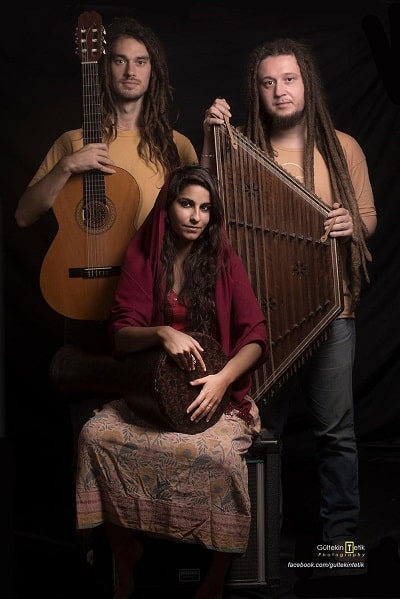
Jerusalem, Istanbul and Gypsy Love are some of the names of your songs. On a scale from one to overwhelming, how influential is Istanbul in your music, culture-wise?
Michal: I think our music is definitely influenced by Istanbul. I think this kind of music and this kind of mix and fusion can only happen in the city. There is something very special about the city that I’ve never felt in other places. I traveled in the East, India, Thailand, Eastern and Western Europe, and I never saw something like in Istanbul; its cultural open-mindedness; the combination of music, art and culture; and its combination of East and West. I think we are a great example of Istanbul – people come from East and West to meet and create something together.
Since you have been playing in the street for four years, in what ways has the music scene in Istanbul changed over the past few years, especially with the surge in foreign bands and street musicians?
Metehan: A lot has changed. People understand more easily what we do, not just us but other bands as well. The bureaucratic protocols also changed a little bit. The police (zabita) look at us differently now. Different bands and different visions are growing and spreading more, even more than in Europe. It’s very good thing, I think. The quality of music is improving because people don’t just want to play in the street and make money. They take the time to create a vision, and develop a philosophy of sorts, they don’t just go out and play.
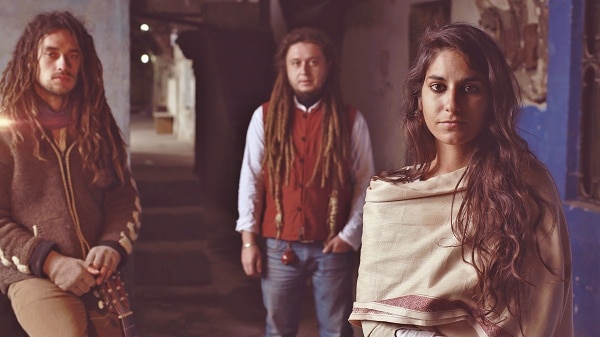
From your four-year experience, what is the hardest and most exciting part about busking?
Michal: Busking is not an easy thing. Maybe sometimes it looks easy. It looks like we go and sit in the streets, everybody comes, we play and it’s great. But it’s not always necessarily like this. Sometimes we perform very well, and many people like us. But they need to be aware that the street is a noisy place. When we play, we also consider that there is a lot of noise, the cleaning vehicles, the passing tram, and people who talk. Not only that, but many people also get excited and want to talk to us and ask us questions. It is very possible to have all these people at once. The street is very chaotic. Besides, there are other musicians.
Some shop owners don’t allow us to play in front of their places. Sometimes, the zabita (police) ask us not to play the drum or this and that, and they can be aggressive. There are many things that make it very difficult. But still we are doing it. Because there are also many beautiful things; people get excited; it is more touching; it feels very natural; and it is not from behind the microphones or the stage. So even it’s difficult, there’s still some magic in it.
Music has always been an expression of ethnic and religious identities in Istanbul, such as Armenian or Greek liturgical music, just to name a few. How do you see your music playing a role in transcending current cultural barriers?
Michal: Actually, this is a very good question. The first question people ask us is: “Which kind of music is this?” Then they ask, “Where are you guys from?” and I answer “We are from Turkey.” “So it’s Turkish music,” they say, and I answer, “No, it’s not Turkish music.” Then they ask, “Where are you from?” and I say, “I’m from Israel/Iran,” then they say “Oh! So it’s Persian music.” “No, it’s not,” I say.
Metehan: Some even ask, “Is it ethnic music?” and I tell them, “No, it’s not ethnic either. We compose our own songs.” Then they ask, “Where do you play? Oh, in this corner in Taksim, so it must be Taksim music.” And we insist, this not Taksim music nor street music.
Michal: I think this is because the old generation is so used to the idea that music belongs to a certain place and culture. But today, we are in a new generation where all the cultures have mixed together. So today, as a result of this cultural development, we are creating something new – music that is not rooted in a place. There’s actually a name for this kind of music, it’s called world music. And it fits well. We are living in this world, in this solar system, and that’s what we are making. Where is this music coming from? It is coming from our soul, and our soul is universal.
Metehan: Not only that, after the industrial revolution, new generations, cultures, instruments and sounds are being created. We play acoustic instruments. You can find our melodies in Indian, European, Egyptian, or Middle Eastern music. This is the world we live in today.
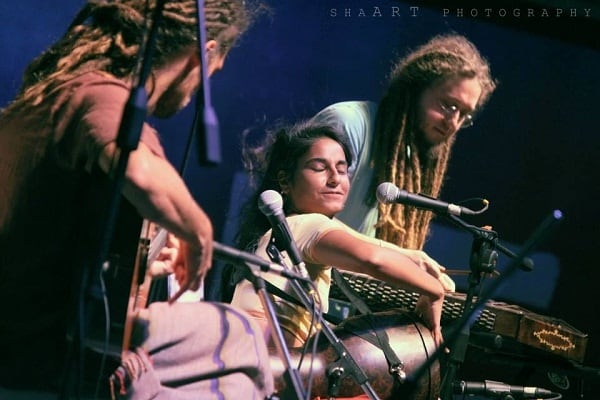
Do you have any plans for the summer?
Michal: Yes, we actually haven’t released this information yet, but this summer we have two tours in Europe. We have five or six festivals and a few concerts in Europe; France, Germany, Switzerland, Czech Republic, and maybe in Hungary and Italy. We are going to have a long tour in Europe this summer.
Any last words to add for the yabancılar in Turkey?
Julien: Enjoy your time in Istanbul.
Michal: I can say that here me and Julien are foreigners (yabancı). We have been living in Istanbul for four years. But even though we are not from here, there’s something very magical in Istanbul and in Turkey in general, something very welcoming. Especially, if you are a musician, you feel that the city is hugging you and taking you in. I think this is part of the reason why we couldn’t leave the city.
You can listen to Light in Babylon’s latest song “Gypsy Love” here, and some of their earlier tracks here and here.




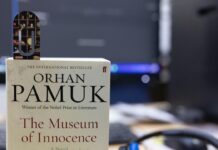





super
My favorite band.
#shaART_PHOTOGRAPHY 😀 🙂
https://www.facebook.com/shaARTphotography
#shaART_PHOTOGRAPHY 😀 🙂
https://www.facebook.com/shaARTphotography
Nice clicks my dear..
My favourite band too.
My favourite band oo.